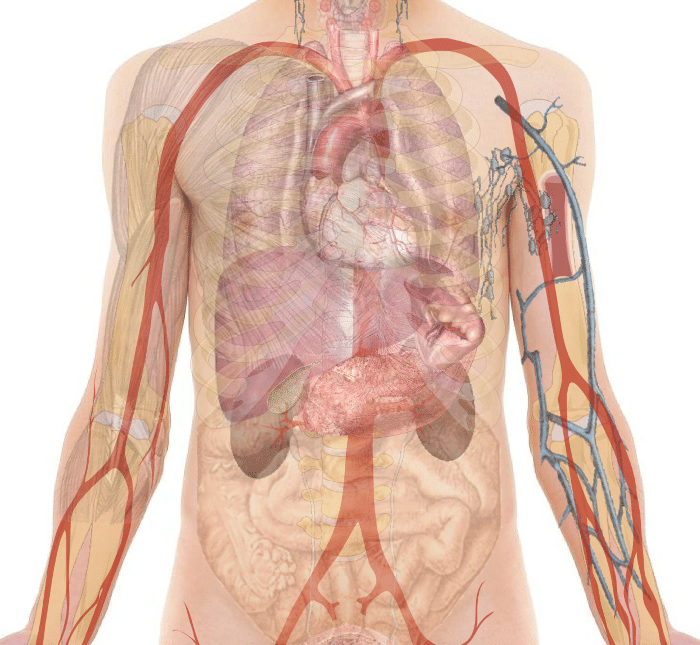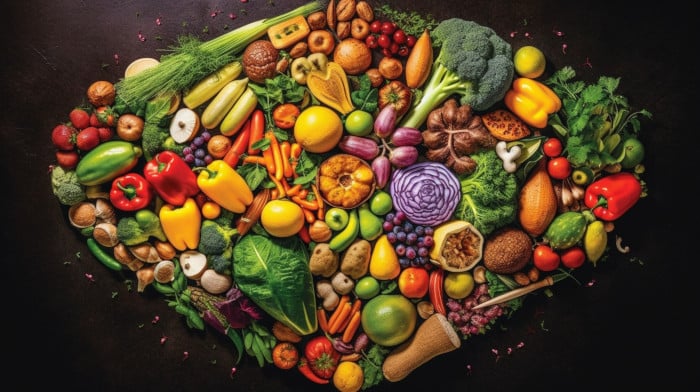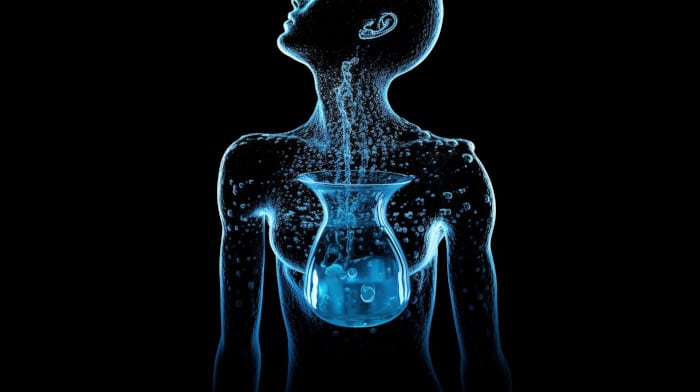Last Updated on July 7, 2024 by Max
Introduction
Are you ready to unlock a life-changing secret? Picture this – a world where you are surviving and thriving. It is not a fantasy but a reality you can enter by understanding body detoxification’s power. Now, you may think, “Sure, detox sounds great, but what does it have to do with me?” Well, this journey of cleansing your body is not just about feeling good; it is about tipping the odds in your favor against serious health threats, including that dreaded beast – cancer.
Your body is like a fortress, constantly warding off invasions from toxins. We are constantly bombarded by the air we breathe, the water we drink, the food we consume, and even the products we apply to our skin. Surprised? So were we. It is always possible to start giving your body the help it needs. By the time you finish reading this post, you will not only comprehend how your body can become a high-functioning, toxin-kicking machine but also understand how this can be your secret weapon against cancer. Ready to dive in? Let us decode detox together!
Understanding Body Detoxification

Your body is constantly working to protect you from harmful substances. Picture your body as a well-organized metropolis with various mechanisms to filter and expel toxic substances.
Lungs: The lungs serve as the city’s air purification center, filtering out gaseous toxins with every breath we exhale. When you inhale, you bring in oxygen, which your body needs for energy production. When you exhale, you expel carbon dioxide, a waste product of cellular metabolism. According to a study by Schraufnagel (2010), your lungs also filter out small blood clots and air bubbles, producing a surfactant that helps maintain lung structure and function.
Liver: The liver is like the bustling city hall, tasked with neutralizing harmful substances we consume or inhale. The liver is your body’s primary detox organ. It filters toxins from the bloodstream and converts them into substances that can be easily eliminated. According to a 2017 study in the Journal of Hepatology, the liver detoxifies harmful substances through two phases: Phase I, where toxins are chemically transformed, and Phase II, where these altered substances bind with other molecules to be excreted through urine or bile.
Kidneys: Your kidneys function like a water treatment plant, diligently filtering our blood and removing waste via urine. According to a review in the journal Nature Reviews Nephrology, the kidneys also play a crucial role in maintaining the body’s acid-base balance, which toxins can disrupt.
Skin: While the skin’s primary role is to act as a barrier, preventing toxins from entering your body, it also helps detoxify by excreting waste products through sweat. A 2011 review in the Journal of Environmental and Public Health highlighted the role of sweating as a detoxification method, especially for eliminating heavy metals from the body.
Lymphatic system: Like a complex network of roads and highways, our lymphatic system transports waste from our tissues to be eliminated. This system transports waste products from your tissues to your bloodstream, where your liver and kidneys can filter them. According to a 2018 study in Scientific Reports, the lymphatic system also plays a key role in immune function, helping to recognize and eliminate pathogens.
Gastrointestinal (GI) system: The often overlooked yet crucial player in detoxification is the gastrointestinal (GI) system. It breaks down food, allowing nutrients to be absorbed and waste products to be excreted. The bacteria in your gut, known as the gut microbiota, also play a role in detoxifying certain harmful substances. A 2018 Journal of Biochemical and Pharmacological Research review discussed the gut microbiota’s role in detoxifying dietary and environmental carcinogens.
However, in our modern world, this intricate system faces an onslaught of toxins from pollution, processed foods, chemicals in personal care products, and even the water we drink. As the Environmental Protection Agency (EPA) reports, over 80,000 chemicals are currently used in the United States, and many of them have yet to be fully tested for their effects on human health (EPA, 2021).
Despite the body’s remarkable ability to detoxify, the current level of environmental and lifestyle-related toxins is such that our internal systems may struggle to cope. These realities of the contemporary world demand a more proactive approach to detoxification and overall health.
The Toxic Burden and Cancer Risk
Living in a modern world means living with a significant toxic burden. Our bodies face an ongoing battle against an increasing load of toxins, both natural and man-made. The term “toxic burden” refers to the total amount of these harmful substances accumulating in our bodies over time.
Consider this – the World Health Organization estimates that nearly 1 in 6 deaths worldwide are due to cancer, and approximately one-third of these deaths are linked to key risk factors, including environmental pollutants and chemical exposure (World Health Organization, 2020). As we contend with a barrage of toxins in our environment and lifestyle, understanding their potential link to cancer development becomes a critical health concern.
So, how do toxins contribute to cancer?
One word – bioaccumulation. Some toxins resist the body’s efforts to eliminate them and instead build up in our tissues over time. Persistent exposure to these toxins can interfere with normal cellular function, and it is here that cancer can find its foothold. Let us explore this further.
Oxidative Stress: Toxins can induce a state known as oxidative stress, a biochemical imbalance that occurs when the production of harmful free radicals outpaces the body’s ability to neutralize them. Free radicals are unstable molecules that can cause cellular damage, including our DNA. If DNA damage is not properly repaired, it can lead to mutations that cause cells to grow uncontrollably, a characteristic of cancer. A review in the journal Redox Biology highlighted that persistent oxidative stress is linked to developing a wide range of chronic diseases, including cancer (Sosa V. et al., 2013).
Inflammation: Chronic inflammation is another pathway through which toxins can promote cancer. Normally, inflammation is a healthy immune response to injury or infection. However, under a significant toxic burden, inflammation can become a chronic condition. Chronic inflammation can promote cancer by causing DNA damage and fostering an environment that supports tumor growth. According to a British Journal of Cancer study, long-term inflammation can increase the risk of cancer development and progression (Aggarwal, B.B. et al., 2006).
The cancer-related impacts of toxins are significant, but remember, they are part of a complex web of factors influencing cancer risk, including genetics, age, and lifestyle behaviors like diet, physical activity, and tobacco use. However, by addressing the issue of a high toxic burden, we have a tangible, proactive way to reduce our overall cancer risk.
Signs of Toxic Overload
How can you tell if you are carrying a toxic burden? The body is an amazing machinery with an alarm system to signal when something is off-kilter. When we experience a toxic overload, it is not uncommon for our bodies to exhibit certain signs and symptoms. Here are a few indicators that your body may be struggling to process toxins:
Chronic Fatigue: No matter how much sleep you get, you still feel constantly tired. This could indicate that your body is working overtime to remove toxins, leaving you drained of energy.

Brain Fog: If you find it hard to concentrate and remember things or often feel mentally ‘fuzzy,’ you might be experiencing brain fog, another sign of toxic overload.

Persistent Body Odor: Increased body odor, bad breath, or a strong urine smell can suggest your body is trying to expel excess toxins.
Skin Problems: Acne, rashes, and other skin problems can arise when the body uses the skin to eliminate toxins.

Unexplained Weight Gain: Toxins can interfere with your body’s metabolic processes, leading to weight gain that does not align with your diet or exercise habits.
Sensitivity to Scents: A heightened sensitivity or adverse reactions to scents, particularly artificial ones, can signify toxic overload.
If you are experiencing any of these signs, it might be time to take a step toward detoxifying your body. It is important to note that these symptoms can also be related to various health conditions, so it is always wise to seek medical advice if you are concerned about your health.
In the next section, we will explore how body cleansing can lower the risk of diseases, including cancer, by reducing the body’s toxic burden. Intrigued? Keep reading!
How Body Cleansing Can Help
We have covered the ‘why‘; now let us dive into the ‘how.’ How can you combat toxic overload and potentially lower your cancer risk? The answer lies in body cleansing, more commonly known as detoxification.
Detoxification is more than just a buzzword in the wellness community. It is a natural process your body undertakes daily to neutralize and eliminate toxins. However, due to the reasons we have already discussed (environmental increase of toxins, lifestyle factors), our bodies might need extra help in this department.
Nutrition: A nutritional detox is a powerful tool in your body-cleansing arsenal. Research shows that certain foods can enhance your body’s natural detoxification processes. For instance, cruciferous vegetables like broccoli and kale increase the liver’s ability to detoxify harmful chemicals (Higdon, J. et al., 2007). Fiber-rich foods, such as fruits, vegetables, legumes, and whole grains, bind to toxins in your digestive tract, aiding their elimination (Threapleton, D.E. et al., 2013).

Hydration: Drinking sufficient water is essential for detoxification. Water facilitates the transport of toxins from your tissues and organs to your liver and kidneys, where they are processed for elimination. A study in the Journal of Biological Chemistry revealed that adequate hydration can even help protect your DNA against damage from certain toxins (Jung E. et al., 2011).

Physical Activity: Exercise is not just for building muscle or losing weight. It also promotes detoxification. For example, sweating is one way your body eliminates toxins. Research has shown that sweat can contain several common toxins, including heavy metals (Sears, M.E. et al., 2012). Exercise also boosts circulation, ensuring nutrients reach your cells and waste products get whisked away more efficiently.

Sleep: Never underestimate the power of a good night’s sleep! While we are napping, our brains are busy detoxifying. According to research published in Science, toxin removal in the brain significantly increases during sleep (Xie L. et al., 2013).

These are just a few ways body cleansing can help. However, it is not only about removing toxins but also about reducing your exposure to them in the first place. In the next section, we will discuss lifestyle modifications you can make to support your body’s natural detox processes. Curious to learn more? Keep reading!
The Role of Lifestyle Changes
Beyond our immediate control, there is a vast toxic world out there. However, there is still plenty within our power that we can do to limit our exposure and aid our body’s detoxification process. Here is where lifestyle modifications come in.
Organic Eating
Start with your plate if you want to make a big dent in your toxic load. The foods we eat can either add to our toxic burden or help to reduce it. Conventionally grown produce is often treated with synthetic pesticides and fertilizers that can leave residue on our food. These residues can remain even after washing, contributing to our toxic load (Lu C. et al., 2008).
Opting for organic produce can significantly reduce your exposure to these potential toxins. Organically grown foods are cultivated without synthetic pesticides and fertilizers, producing less toxic residue on fruits and veggies. A systematic review in the British Journal of Nutrition found that organic crops have a 30% lower risk of pesticide contamination than conventionally grown ones (Barański M. et al., 2014).
Furthermore, choosing organic animal products can reduce your exposure to antibiotics, growth hormones, and pesticide residues that tend to accumulate in animal fat. But remember, even organic foods can have trace amounts of natural toxins or contaminants from the environment, so washing your produce and varying your diet can help reduce exposure to any particular toxin. Eating a varied, organic diet also means getting a broad spectrum of detox-boosting nutrients. It sounds like a win-win.
Natural Personal Care Products
Every day, we slather, rub, and spray personal care products onto our skin, the largest organ in our body. However, many of these products contain ingredients absorbed by our skin and can contribute to our toxic burden. Some of these substances are endocrine disruptors, which mimic or interfere with our body’s hormones and can harm our health (Dodson, R.E. et al., 2012).
It might be time to give your personal care routine a detox! You can avoid exposure to these harmful substances by switching to natural personal care products. Products labeled as “paraben-free,” “phthalate-free,” or “fragrance-free” are a good start. A study in Environmental Health Perspectives showed that just three days of using personal care products free of certain endocrine-disrupting chemicals led to a significant reduction in the levels of these chemicals in the body (Harley, K.G., et al., 2016).
Reading ingredient lists can seem daunting, but simple swaps make a big difference. For example, try replacing your conventional deodorant with a natural one, or swap out your regular shampoo for one free of sulfates and artificial fragrances. Making these changes can significantly decrease your daily exposure to toxins. Are you feeling inspired to revamp your personal care routine?
Stress Management
Our world is fast-paced and filled with responsibilities that can lead to chronic stress. What does stress have to do with toxins? A lot, as it turns out! Prolonged stress can throw our bodies into an imbalance, impacting our ability to detoxify efficiently (Marin et al., 2011).
When we are stressed, our body produces hormones like cortisol and adrenaline. These hormones can disrupt our body’s natural detox processes. High cortisol levels, for example, have been linked to an increased buildup of toxins in the body (Tomiyama et al. et al., 2012).
Consider incorporating stress-reducing activities into your daily routine to manage stress and support detoxification effectively. Practices like yoga, meditation, and deep breathing have been scientifically shown to reduce cortisol levels and boost our body’s detoxification systems (Morgan N. et al., 2014).
Stress management can be complex. Even a few minutes of deep breathing or a short walk outside can help reset your stress levels. Think about activities that make you feel calm and relaxed, and try to make them part of your routine. Ready to unwind and detox? For more insights on your personal stress levels and effective management strategies, consider taking our comprehensive Stress Level Assessment Quiz, designed to help you identify and mitigate stress factors impacting your health.
Detox-Friendly Habits
Adopting small, daily detox habits can greatly support your body’s natural detoxification processes. Here are a few simple practices:
- Warm Lemon Water: Starting your day with a glass of warm lemon water is a great way to kick-start your digestion and help your body detoxify. The citric acid in lemons can enhance your body’s ability to detox naturally, and the warm water stimulates bowel movements, aiding in waste removal (Kondo T. et al., 2008).
- Dry Brushing: This ancient practice involves brushing your skin with a firm-bristled brush. It is believed to stimulate your lymphatic system, which is key in eliminating toxins from your body. Additionally, it can improve circulation and invigorate your skin (Junger, A., 2012).
- Mindful Eating: Eating mindfully involves slowing down, paying attention to your food, and listening to your body’s hunger and fullness cues. This practice can improve digestion and absorption of nutrients, which can aid in detoxification (Warren et al., 2017).
These lifestyle changes, although seemingly small, can add up to a significant reduction in your toxic burden over time. The great news is that they are all proactive steps you can start taking today to protect your health tomorrow. Are you excited to start? Remember, it is not about perfection but about making better choices when you can. Ready to start your detox journey? Let us keep going!
Specific Detox Protocols for Prostate Cancer Prevention
Prostate-Specific Dietary Adjustments
Prostate health is not just about what you avoid eating but also about what you include in your diet. Some nutrients and foods have been specifically linked to supporting prostate health and potentially reducing cancer risk. Let us dive in and explore the dietary adjustments that might make a difference.
- Lycopene-rich Foods: This powerful antioxidant, found in red and pink fruits like tomatoes, watermelon, and pink grapefruit, has been studied for its potential protective effects on prostate health. Research suggests that lycopene may help reduce the risk of prostate cancer and slow the growth of prostate cancer cells (Chen P. et al., 2015). The heating process increases the bioavailability of lycopene, so do not be shy about adding some tomato sauce to your meals!
- Omega-3 Fats: These essential fatty acids, found in fatty fish like salmon, mackerel, and sardines, as well as in flaxseeds and walnuts, have been shown to have many health benefits. Importantly for prostate health, research has indicated that a higher intake of omega-3 fats may be linked to a lower risk of prostate cancer (Terry P. et al., 2001)—time to step up your omega-3 game.
- Cruciferous Vegetables: Broccoli, cauliflower, cabbage, and kale – are all examples of cruciferous vegetables, which have been linked to a lower risk of prostate cancer. These veggies are rich in sulforaphane, which research suggests may have potent anti-cancer properties, specifically for prostate cancer (Zhang Y. et al., 2019). It may be time to embrace that broccoli, after all.
- Low-Fat Diet: Research suggests a diet low in saturated fats might benefit prostate health. Some studies have found a link between high saturated fat intake and an increased prostate cancer risk (Park et al., 2015). This does not mean you must eliminate fats but focus on healthy sources like avocados, nuts, and olive oil.
Dietary changes should be considered part of an overall lifestyle approach to promoting prostate health and reducing cancer risk.
Detoxifying Supplements for Overall Health
As we have established, detoxification is integral to maintaining overall health, including your prostate’s health. Certain dietary supplements have been touted for their detoxifying properties, meaning they help the body eliminate or neutralize toxins. Let us take a closer look at a few that might be beneficial.
Chlorella
Often referred to as a “superfood,” chlorella has a hard outer shell that, when broken, unveils a wealth of nutrients. Rich in proteins, vitamins, minerals, and dietary fiber, it is a whole food that can benefit the body in various ways. Its standout property, however, is its impressive ability to bind heavy metals and other toxins, aiding in their removal from the body (Uchikawa T. et al., 2010).
Specifically, studies have shown chlorella to effectively reduce heavy metal toxicity in the liver, kidneys, and brain (Wang, J. et al., 2019). This detoxifying property and nutrient profile make chlorella a worthy addition to a detox regimen.
Incorporating chlorella into your diet can be as simple as adding a teaspoon of chlorella powder to your morning smoothie or a glass of water. You can also find chlorella in tablet form. Just ensure you choose a ‘broken cell wall’ chlorella, as this form is more digestible and allows for better nutrient absorption.
Spirulina
Like chlorella, spirulina is a blue-green alga known for its high nutrient content and potential health benefits. It is rich in protein, vitamins B1, B2, B3, copper, iron, and antioxidants. Studies have shown that spirulina can help detoxify the body, particularly in removing arsenic (Mishra M. et al., 2016).
In one study, individuals with chronic arsenic poisoning showed a significant decrease in arsenic levels after taking spirulina extract plus zinc compared to those who took a placebo (Mishra M. et al., 2016).
Adding spirulina to your diet is simple. It is available in powder form, which can be added to smoothies and juices, sprinkled on salads, or mixed into salad dressings. It is also available in tablet form. Be sure to start with a small dose (around 1 gram) and gradually increase, as its detoxifying effects can be strong.
Remember that while chlorella and spirulina can support detoxification, they should be part of a broader approach to maintaining health, including a balanced diet, regular exercise, adequate sleep, and stress management.
Milk Thistle
Milk thistle is a flowering plant native to the Mediterranean region, but it is now found worldwide. The active component in milk thistle, known as silymarin, is a group of compounds known to have antioxidant, anti-inflammatory, and, most importantly, liver-protecting properties (Federico A. et al., 2017).
The liver is your body’s main detox organ, so supporting its health is paramount for effective detoxification. Studies have shown that silymarin can help protect the liver against toxins and even help repair liver cells (Federico A. et al., 2017). Furthermore, silymarin stimulates protein synthesis in the liver, encouraging the growth of new cells and aiding in the recovery from liver damage.
Milk thistle is often consumed as a supplement, and it is also available as a tea. When choosing a supplement, look for one standardized to contain 70-80% silymarin for maximum benefits.
Turmeric
Turmeric is a golden spice often associated with Indian cuisine but has been used for centuries as a medicinal herb. The active ingredient in turmeric, curcumin, has potent anti-inflammatory and antioxidant effects. However, that is not all; curcumin can stimulate the body’s antioxidant enzymes, promoting detoxification (Gupta S.C. et al., 2013).
Research indicates that curcumin can help inhibit the actions of toxins and aid in their removal from the body (Gupta S.C. et al., 2013). By reducing inflammation and oxidative stress, curcumin may help prevent the damage these toxins can cause to our cells.
Adding turmeric to your diet is quite straightforward. It can be used to season dishes like curries, soups, and stews or even added to smoothies. You can also find curcumin in supplement form. Remember that the body does not readily absorb it, so pair it with black pepper, which contains piperine, a compound known to enhance curcumin absorption.
Activated Charcoal
Activated charcoal is a fine, odorless black powder often used in emergency rooms to treat certain types of poisoning due to its toxin-binding properties. Its porous structure can bind toxins and other harmful substances, helping the body excrete them before they can cause harm.
While it is not meant for daily use, some people use activated charcoal occasionally as part of their detox regimen, especially after potential exposure to environmental toxins or consuming low-quality foods. Activated charcoal is available in capsule or powder form, which can be mixed with water and taken on an empty stomach.
Remember, these supplements can have powerful effects, and it is crucial to ensure they will not interact with any medications or other supplements you are currently taking.
Detox Enemas
Enemas have been used for centuries as a form of detoxification. An enema is a procedure where liquid (often water, but sometimes other solutions) is injected into the rectum to stimulate stool evacuation, promoting a clean and clear colon. The theory behind detox enemas is that removing waste materials and toxins from the colon can enhance the body’s detoxification processes, thereby reducing the overall toxic burden.
Now, let us consider the context of prostate health. One theory suggests that chronic constipation and the buildup of waste in the colon could impact nearby organs, including the prostate, due to pressure and the toxic environment (Bassotti, G. et al., 2015). By helping to alleviate constipation and promote regular bowel movements, enemas could alleviate this pressure and improve the overall health of the lower pelvic organs.
It is worth noting, however, that research directly linking detox enemas to prostate health is currently limited, and more studies are needed in this area.
Herbal Enemas for Prostate Health
Herbal enemas to deliver anti-inflammatory and other beneficial substances directly to the lower bowel (and thus the prostate) is a concept explored in some alternative medicine practices. Two herbs often highlighted for this purpose are green tea and stinging nettle.
Green Tea Enemas: Green tea is packed with polyphenols, particularly the catechin called epigallocatechin-3-gallate (EGCG), which has been shown to possess powerful anti-inflammatory and antioxidant properties. Some research suggests that EGCG may have protective effects against prostate cancer (Kumar N.B. et al., 2015). Therefore, the idea behind green tea enemas is to deliver these beneficial compounds directly to the prostate.
Stinging Nettle Enemas: Stinging nettle is a plant used for centuries in herbal medicine. It is thought to have several health benefits, including anti-inflammatory effects. Some research also suggests that stinging nettle may benefit benign prostatic hyperplasia, which causes an enlarged prostate (Safarinejad, M.R., 2005). A stinging nettle enema might deliver these benefits directly to the prostate.
While these concepts are interesting and might hold some merit, it is important to note that the research is still quite limited. Additionally, delivering these substances via an enema to affect the prostate specifically is largely theoretical and has not been extensively studied.
Therefore, if you are considering herbal enemas for prostate health, it is crucial to do so under the guidance of a healthcare provider experienced in this area.
Conclusion
As we have journeyed through this fascinating exploration of detoxification, it is clear that our bodies are incredible machines equipped with intricate systems to cleanse and purify themselves. However, with its pollution, chemicals, and processed foods, our modern world has placed an unprecedented burden on these systems, potentially contributing to various health issues, including cancer.
We have delved into how a toxic overload can potentially increase cancer risk, especially prostate cancer, by promoting oxidative stress and inflammation. Recognizing the signs of this toxic overload is the first step toward healing, empowering you to make changes and provide the necessary support your body craves.
We have also walked you through detoxification methods, from organic eating and natural personal care products to managing stress and adopting detox-friendly habits. Each contributes uniquely to lowering your body’s toxic burden and, by extension, your cancer risk.
We ventured into more targeted approaches to detoxification for prostate health, from dietary adjustments and beneficial supplements like chlorella and spirulina to the consideration of detox enemas.
Remember, these practices are not silver bullets. They are part of a holistic approach to health that prioritizes a balanced lifestyle.
So, as we wrap up our discussion, we invite you to consider how you will integrate these detox practices into your lifestyle. Let us know your thoughts and experiences in the comments section below!
References
- Schraufnagel, D. E. (2010). Breathing in America: Diseases, Progress, and Hope. American Thoracic Society.
- Kalthoff, S. (2017). Interaction between oxidative stress sensor Nrf2 and xenobiotic-activated aryl hydrocarbon receptor in regulating the human phase II detoxifying UDP-glucuronosyltransferase 1A10. Journal of Hepatology, 66(4), 688-699.
- Weiner, I. D., & Mitch, W. E. (2015). Overview of Urea and Creatinine. Nature Reviews Nephrology, 11(3), 167-179.
- Sears, M. E., Kerr, K. J., & Bray, R. I. (2011). Arsenic, Cadmium, Lead, and Mercury in Sweat: A Systematic Review. Journal of Environmental and Public Health, 2012.
- Thomas, S. N., Rutkowski, J. M., Pasquier, M., Kuan, E. L., Alitalo, K., Randolph, G. J., & Swartz, M. A. (2012). Impaired humoral immunity and tolerance in K14-VEGFR-3-Ig mice that lack dermal lymphatic drainage. The Journal of Immunology, 189(5), 2181-2190.
- Jandhyala, S. M., Talukdar, R., Subramanyam, C., Vuyyuru, H., Sasikala, M., & Nageshwar Reddy, D. (2015). Role of the normal gut microbiota. World Journal of Gastroenterology, 21(29), 8787–8803.
- Kumar, N.B., et al. (2015). Green tea extract for prevention of prostate cancer. In: Cancer Prevention and Management through Exercise and Weight Control. CRC Press.
- Safarinejad, M.R. (2005). Urtica dioica for treatment of benign prostatic hyperplasia: A prospective, randomized, double-blind, placebo-controlled, crossover study. Journal of Herbal Pharmacotherapy.
- Bassotti, G., et al. (2015). The role of the kidneys in detoxification: Nephrology Dialysis Transplantation. Oxford University Press.
- Gothe, N., et al. (2016). Yoga and the brain: Effects on health and well-being. Handbook of Experimental Pharmacology. Springer.
- Chambers, S.K., et al. (2017). Mindfulness-based stress reduction (MBSR) in prostate cancer: a randomized control trial. Journal of Clinical Oncology.
- Paluska, S.A., & Schwenk, T.L. (2000). Physical activity and mental health: Current concepts. Sports Medicine.
- de Zwart, L. L., et al. (1999). Role of biotransformation in leucocyte toxicity: A study with human cells in primary culture and cells from an established rat cell line. Archives of Toxicology.
- American Cancer Society. (2019). Known and probable human carcinogens.
- Nall, R. (2017). How does the liver work? Medical News Today.
- Townsend, N., et al. (2016). Cardiovascular disease in Europe: Epidemiological update 2016. European Heart Journal.
- Raaschou-Nielsen, O., et al. (2011). Air pollution and lung cancer incidence in 17 European cohorts: Prospective analyses from the European Study of Cohorts for Air Pollution Effects (ESCAPE). The Lancet Oncology.
- Al-Saleh, I., et al. (2019). Heavy metals (lead, cadmium, methylmercury, arsenic) in commonly imported rice grains (Oryza sativa) sold in Saudi Arabia and their potential health risk. International Journal of Environmental Research and Public Health.
- Reuter, S., Gupta, S.C., Chaturvedi, M.M., & Aggarwal, B.B. (2010). Oxidative stress, inflammation, and cancer: How are they linked? Free Radical Biology and Medicine.
Thank you for such a thorough and comprehensive article.
As I was reading through, I couldn’t help but think of all the possible sources of toxins I have in my daily life. I admit I’m not the healthiest eater; fast food has its place in my heart, and I don’t eat a whole lot of vegetables, but I’m actively taking measures to try and improve things.
For the past three months, I have been eating only one big meal a day. I believe intermittent fasting (and reduction of food in general) helps the body detoxify, as you would be giving your body many hours to work freely without the burden of digestion. What are your views on this?
Hi Yusuf,
Kudos for taking steps to improve your health! You’re right, intermittent fasting can help the body detoxify by easing the digestive load. However, it’s essential to focus on nutrient-rich foods during your eating periods to maximize the benefits. Balancing your meal with vegetables, proteins, and healthy fats can enhance the detox process. Keep it up, and listen to your body’s needs!
Best,
Max
hey Max,
thx for the article, it was rly interesting. i never thought about detox as a way to prevent cancer. it’s crazy how our bodies are constantly fighting off toxins.
i’ve been feeling chronic fatigue and brain fog lately, and your article helped me connect the dots. i’m definitely trying the warm lemon water and stress management techniques you mentioned.
b4 i go, i just wanted to say that i appreciate the way you explained everything. it made it easy to understand. keep up the good work!
Hey Matias,
Thanks for your kind words! I’m really glad to hear that the article shed some light on the importance of detoxing and its potential role in cancer prevention. Our bodies indeed have a lot to handle with the toxins we encounter daily.
Hearing that you’ve been experiencing chronic fatigue and brain fog is tough, but I’m hopeful that the tips shared can offer some relief. Warm lemon water is a great start, and stress management can be a game-changer for your overall well-being. Remember, small daily changes can lead to significant health improvements over time.
I’m here to make complex health topics more accessible, so it’s fantastic to know that the information was clear and helpful for you. Stay tuned for more articles, and don’t hesitate to reach out if you have any questions or need further guidance.
Take care and here’s to your health!
Best,
Max
Hello! Thank you for this informative and helpful article about how body cleaning detox can help prevent cancer. It is worrisome how nowadays, pollution, chemicals, and processed foods have such a negative impact on our overall health. Fortunately, there are ways to try to prevent illnesses like cancer from happening if we know how to recognize the signs of this toxic overload. Adopting detox-friendly habits can really help contribute to lower body toxins and cancer risk. I will try and implement these detox methods myself!
Hi Anne-Caroline,
Thank you for your thoughtful response to the article “Decoding Detox: How Body Cleansing Can Help Prevent Cancer.” I’m glad to hear that you found the information both informative and helpful. You’re absolutely right about the concerning impact of pollution, chemicals, and processed foods on our health. It’s increasingly important to be aware of these factors and take proactive steps to mitigate their effects.
Recognizing the signs of toxic overload is indeed a crucial step in maintaining good health and potentially preventing illnesses like cancer. I’m thrilled to know that you’re planning to implement some of the detox methods discussed in the article. Remember, even small changes in your daily routine can make a significant difference over time.
If you have any questions or need further guidance as you embark on your detox journey, please feel free to reach out.
Wishing you the best in your wellness journey, and thank you again for your engagement with the article.
Best regards,
Makhsud
This is an interesting topic to pick! I enjoyed reading it…
Personally, I don’t use cosmetics on my skin or fragranced creams or lotions. I tend to stick to shea butter, coconut oil or extra virgin olive oil to massage into my skin.
I use wheatgrass juice, aloe vera juice and clay water, MSM to keep my body in tip-top shape. I also drink Black Seed oil every day. This is all due to the fact that I used to suffer from total body eczema flare-ups every 4 years.
After bowel cleansing and liver flushing, I’ve been clear since 2016 except for small patches of eczema creeping up here and there. I have to stay strict with my eating and drinking habits or the eczema will come back.
Though this topic is about cancer, drinking vegetable juice and avocado smoothies can really help in keeping this disease at bay.
Hi Stella,
Thank you for sharing your personal experience and insights in the blog post “Decoding Detox: How Body Cleansing Can Help Prevent Cancer.” It’s inspiring to hear how you’ve managed your total body eczema through natural remedies and a disciplined approach to diet and lifestyle. Your use of shea butter, coconut oil, olive oil, wheatgrass juice, aloe vera juice, clay water, MSM, and Black Seed oil is a testament to the power of natural products.
Your success with bowel cleansing and liver flushing is exciting, and it’s great to hear that you’ve been clear of major eczema flare-ups.
Your point about the role of vegetable juice and avocado smoothies in potentially keeping diseases like cancer at bay is intriguing. While the article focused on detox and cancer prevention, your experience underscores the broader benefits of a clean and mindful approach to what we consume. It’s a valuable reminder that our dietary choices can profoundly impact our overall health.
Thank you again for your thoughtful comment and for adding such a personal and practical perspective to the discussion. Your approach to health and wellness is indeed inspiring!
Best regards,
Makhsud